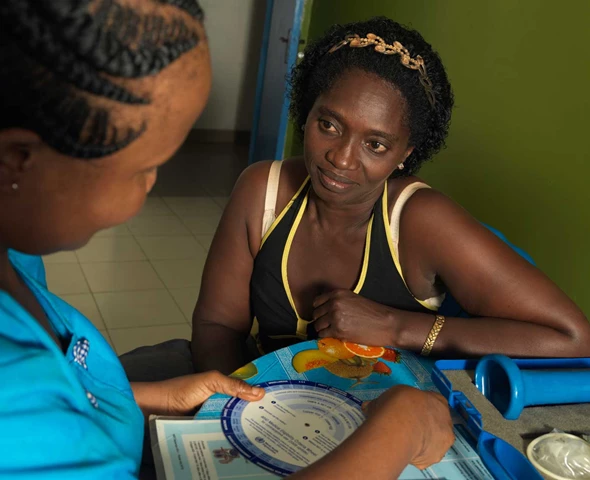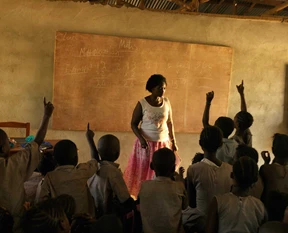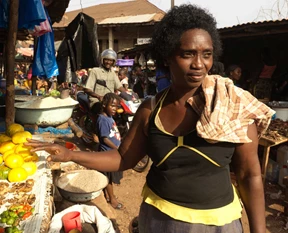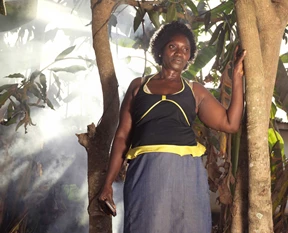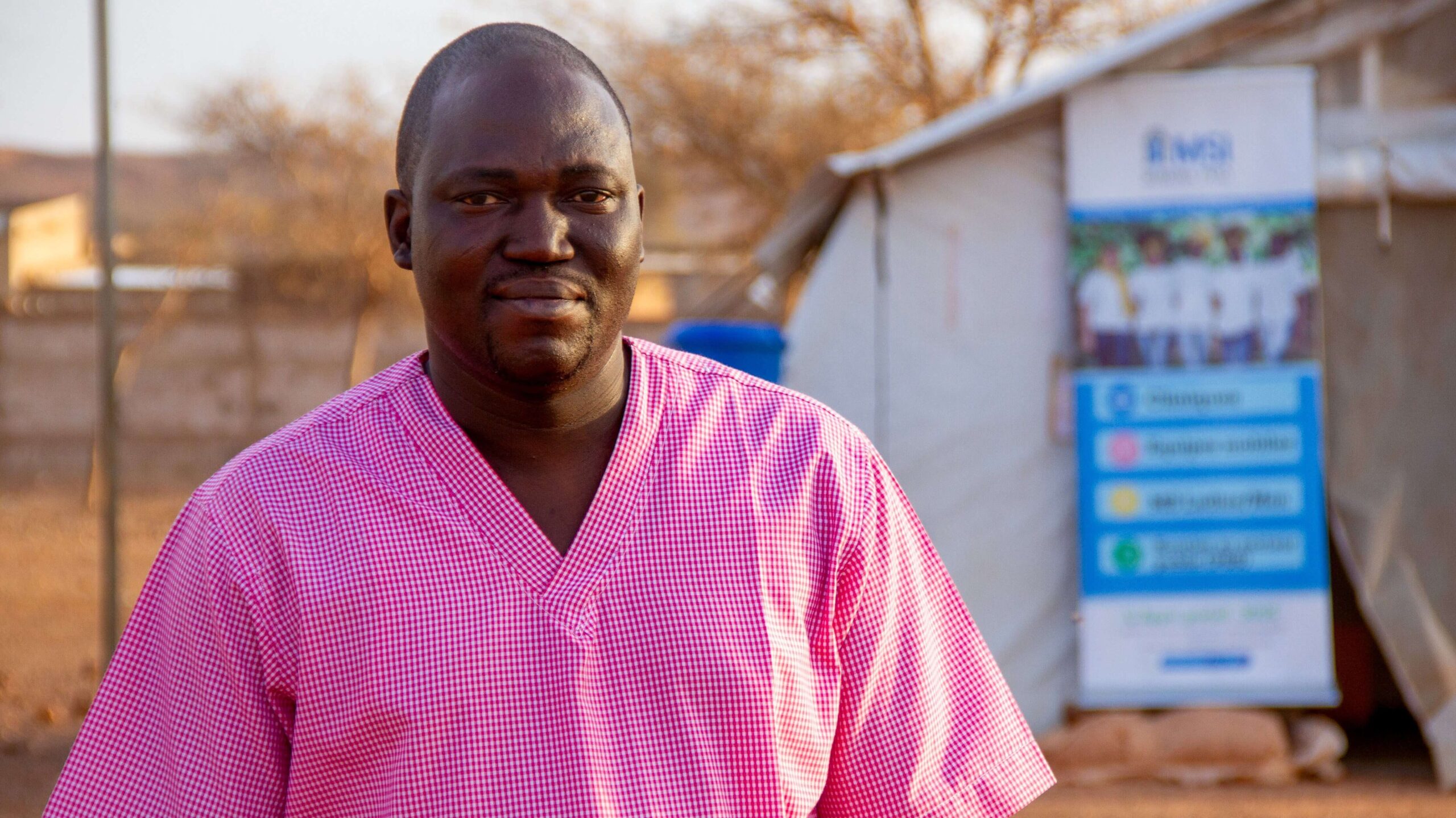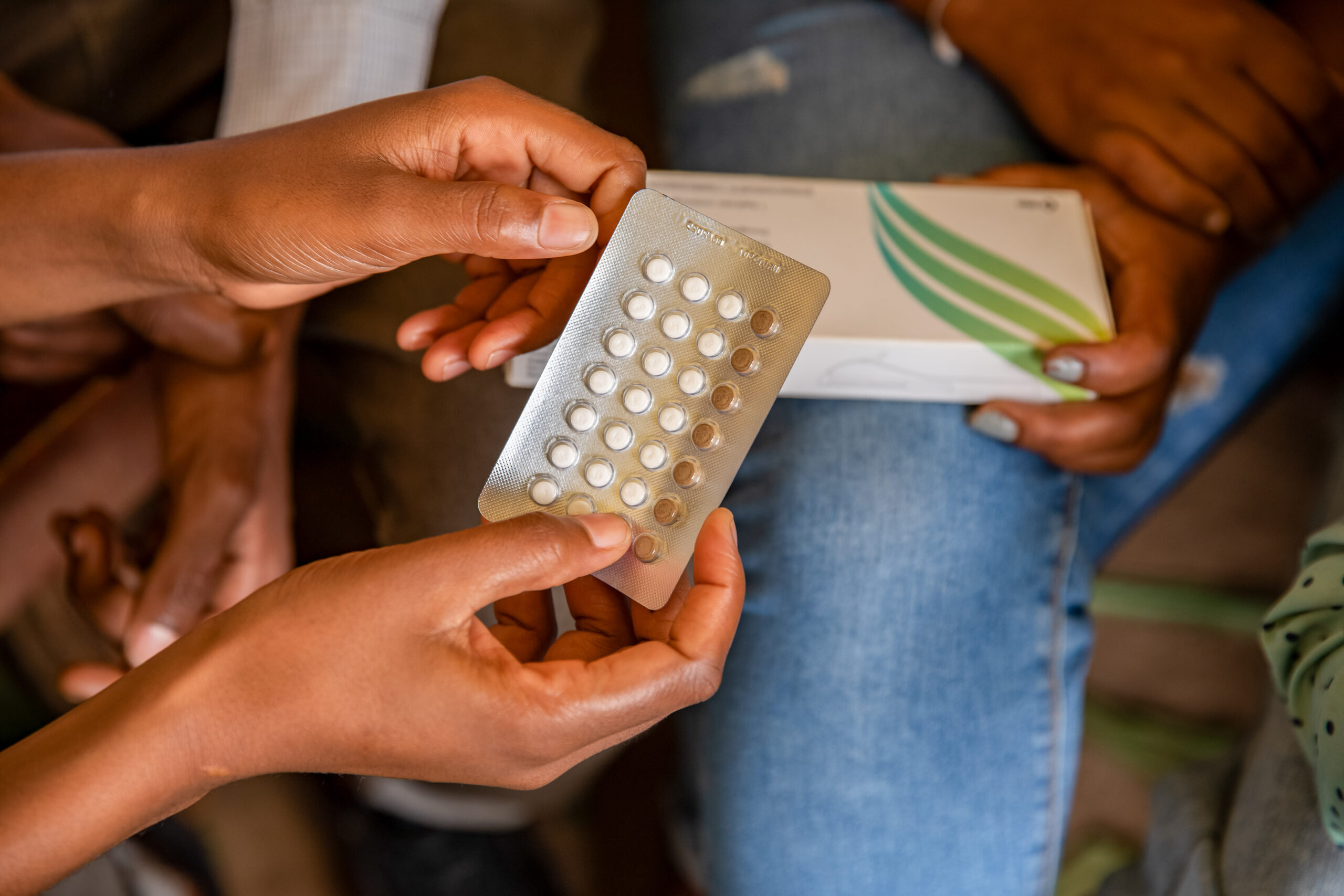“I am not earning much but now I can support myself and my children with the money I bring in.”
“Having many children was never part of my plan,” says Margaret Louve, laying out another pair of trousers ready for the box-iron.
She is working in the courtyard of her family’s compound, a collection of stone buildings in the Southern Province of Sierra Leone. On a low wall beside her is that evening’s pile of laundry: shirts, tops, a bright blue school uniform. This is a daily ritual for Margaret, every day there is more laundry to get through. The chores mount up quickly in a family with seven children.
“I suffer a lot to make ends meet in my home. Life is difficult for me today because of the number of children I have to take care of. Even to provide them with the necessities is a challenge.”
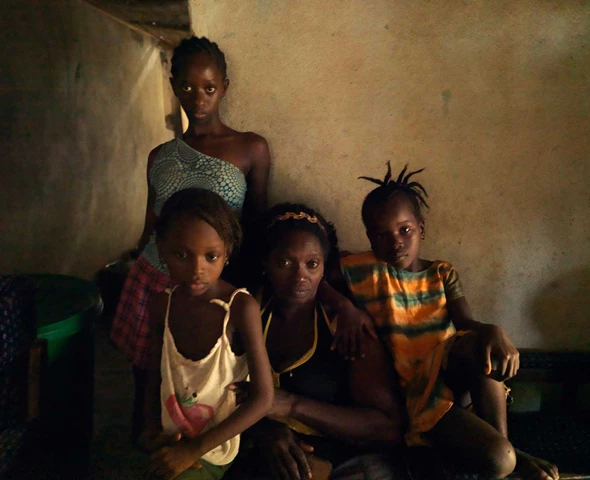
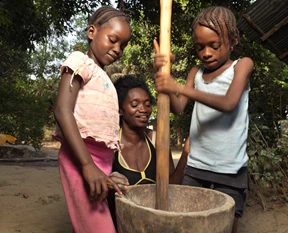
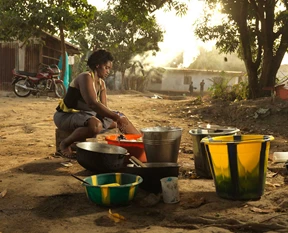
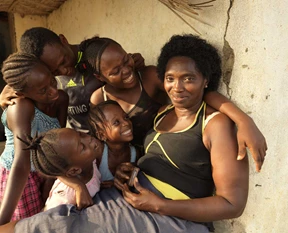
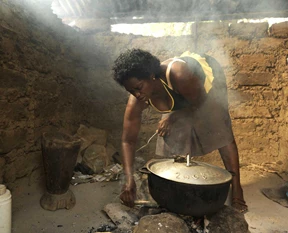
Margaret is 39 years old and, unlike many women in Sierra Leone, she has steady work as a teacher in a local primary school. As the family’s sole bread-winner, she still struggles to bring in enough money to support her children.
“The teacher’s salary is not sufficient,” she sighs. She gestures to a nearby metal pot, steaming over a brazier of charcoal. Each day, she explains, she supplements her salary by preparing food to sell to the pupils at her school, and takes what little money this brings directly to the market to buy food for her own children.
It is an enterprising scheme, but for many years – as Margaret was trapped in a succession of unplanned pregnancies – she was not able to work at all. It was only when she began to access contraception that her life changed course.
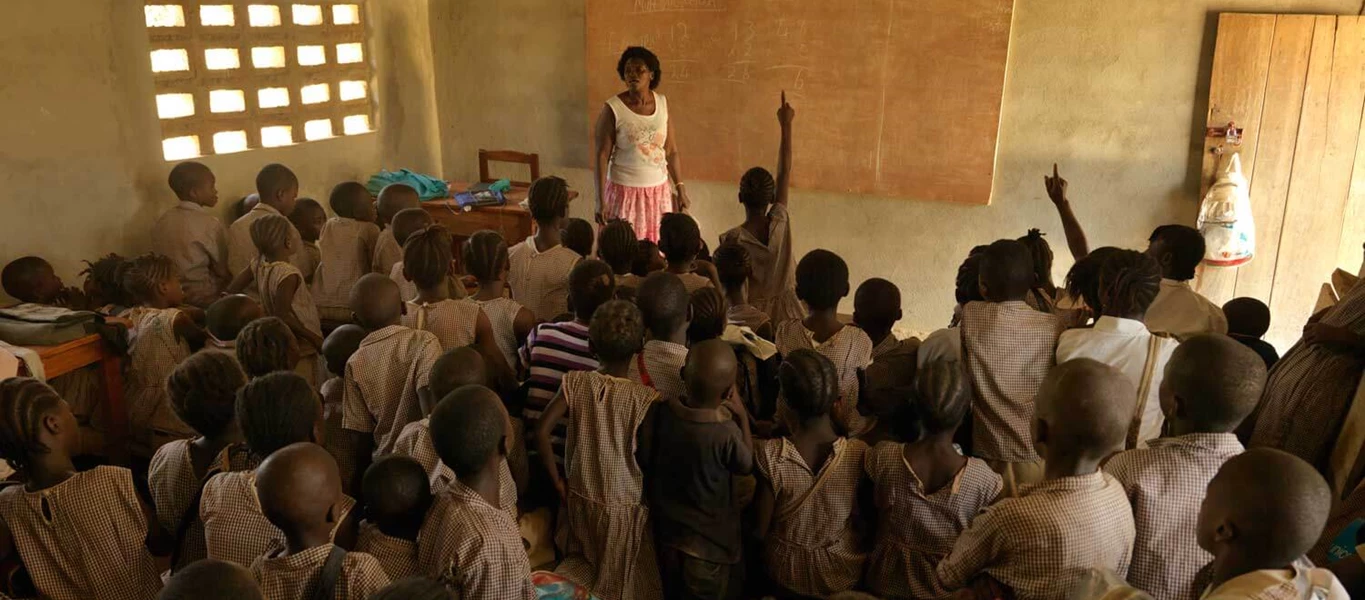
A transformative change
The MSI Sierra Leone clinic in Bo City is a bright, airy building with large windows and colourful murals on its walls. Margaret has come to replace her IUD: a small metal coil that has protected her from unplanned pregnancy for the past five years.
As the nurse talks her through the different contraceptive options they offer at the clinic, Margaret recollects her first visit there, five years ago, and the transformative change it brought to her life.
“Before, I depended on friends, relatives and my husband purely for survival. Ever since I received the contraceptive, my worries about becoming pregnant stopped and I was able to pursue my career in a teacher’s college. I am not earning much but now I can support myself and my children with the money I bring in.”
At her first visit to MSI Sierra Leone, when the nurse had asked how many children she had, Margaret hadn’t wanted to answer. She felt embarrassed. “I believe in contraceptives so I felt like I had failed. I wouldn’t have been suffering today had I followed the principles of family planning. That is why I encourage my daughter to embrace family planning so that she does not make the same mistake.”
“Ever since I received the contraceptive, my worries about becoming pregnant stopped and I was able to pursue my career in a teacher’s college.”
Preventing maternal deaths
As a teacher, Margaret knows only too well the risks of an unplanned pregnancy in Sierra Leone, the country with the worst maternal mortality ratio in the world. An estimated 1 in 17 mothers in the country will die during pregnancy or childbirth, many of them as a result of unsafe abortion.
Margaret lowers her voice. “A few months ago, a pupil in the school where I am teaching got pregnant. The pregnancy went up to three months before she attempted to terminate it herself. Unfortunately, the girl died in the event.” She looks out of the window and falls quiet for a moment. “Since then, I have been spending more time with my daughter.”
Back at the family compound, Margaret sits with her eldest daughter Mariama, while chickens peck around their feet. Despite having very little free time, Margaret tries to spend an hour each evening with her children. Since Mariama became a teenager, she gets extra time with her mother, but instead of nursery rhymes and spellings, they now speak about family planning.
Asked why she does this, Margaret smiles. “This is because I want my kids to go through school and university, to be better people for our country tomorrow.”
